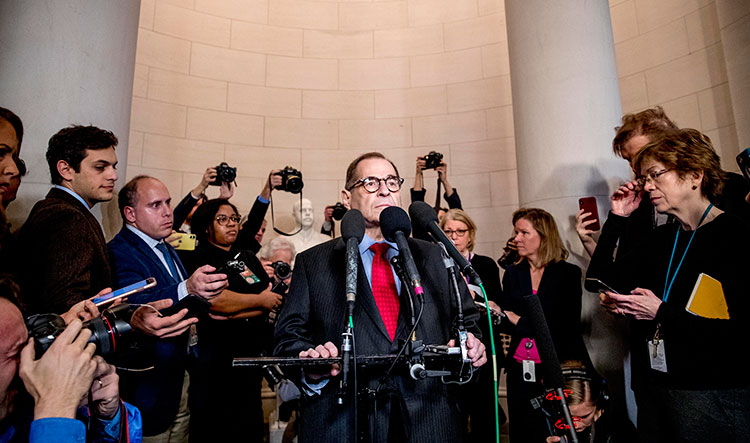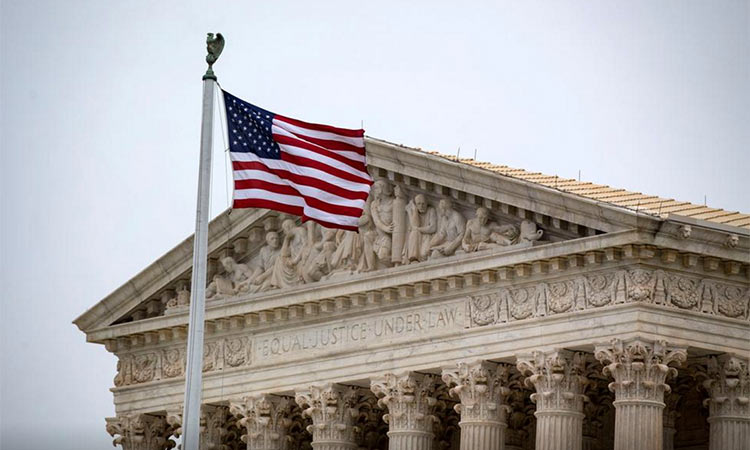Sanders as front-runner raises Dems jitters in Congress

Bernie Sanders, Pete Buttigieg.
Billy House, Erik Wasson and Laura Litvan, Tribune News Service
The muddled Democratic presidential contest is raising jitters among some in the party that their House majority and chances of taking the Senate could be at risk in 2020.
The rise of Bernie Sanders to the top after the New Hampshire primary and the Iowa caucuses, and him supplanting former Vice President Joe Biden as front-runner in national polls, has particularly unsettled some of the Democrats running in heavily Republican areas.
They say the Vermont senator’s embrace of what he calls democratic socialism and promise of a “Medicare for all” system to replace private insurance will motivate President Donald Trump’s voters and turn off the moderates they need to win reelection.
“I’ve said quite clearly that I would prefer for there to be a moderate at the top of the ticket,” said New York Rep. Anthony Brindisi, who ousted a Republican in 2018 and represents the most pro-Trump district of any first-term Democrat. “I would say the voters in New Hampshire felt the same way.”
Although Sanders narrowly won Tuesday’s primary in New Hampshire with 25.7% of the vote, the two runners up, Pete Buttigieg and Amy Klobuchar running as centrist candidates, garnered a total of 44%.
Democrats claimed the House majority in 2018 primarily by combining voter anger over Trump with a moderate message. Brindisi’s upstate New York district is one of 31 that voted for Trump in 2016 and were won by Democrats two years later.
In the Senate, Democrats are targeting more than half a dozen vulnerable GOP-held seats. But Democratic presidential nominee Hillary Clinton won just two of those states in 2016: Colorado and Maine. Trump won the key battleground states of Arizona, North Carolina and Iowa.
The swing-district Democrats who’ve backed a candidate for the party’s nomination are mostly split between Biden and former New York Mayor Michael Bloomberg, who isn’t competing in the first four contests but is spending millions to make his mark in the Super Tuesday round of primaries on March 3.
Sanders has the endorsement of many of the Democratic Party’s progressive stars, including New York Rep. Alexandria Ocasio-Cortez, who represent solidly Democratic districts.
Democratic leaders in Congress, who have not embraced any of Sanders’s more left-leaning policy initiatives, have been trying to tamp down talk of anxiety or panic within the party ranks.
“Just because some people may be speaking out about not liking one candidate or the other — that’s the Democratic way, that’s politics. It’s a messy business,” House Speaker Nancy Pelosi said this week. “We’re calm, we’re cool, we’re collected.”
Senate Democratic leader Chuck Schumer said that as the primaries play out “Democrats will be strongly united.” That hasn’t stopped the chatter in Congress. “I think Sanders is a problem for some moderates. There’s no question about it because I hear the talk around,” Democratic Rep. Al Lawson, who represents a safe Florida district, said. Allies of Sanders dismiss the angst as part of winnowing process in the primaries. They say that if the goal is defeating Trump, the party will coalesce around the nominee.
“There will always be concerns about party unity no matter who it is,” Ocasio-Cortez said. “Like, if Klobuchar or whomever were the front-runner right now, there would be a lot of stress as to whether progressives would unify” behind her.
Sanders maintains a loyal base of supporters and has a proven ability to bring out youthful and working-class voters. Also, polls show him performing about as well as moderates Biden and Bloomberg in head-to-head match-ups against Trump. Four years ago, establishment Republicans had similar concerns about their prospects in congressional races when it became clear that Trump would be their nominee. They still emerged with control of the House and Senate despite a net loss of two Senate seats and six House seats.







